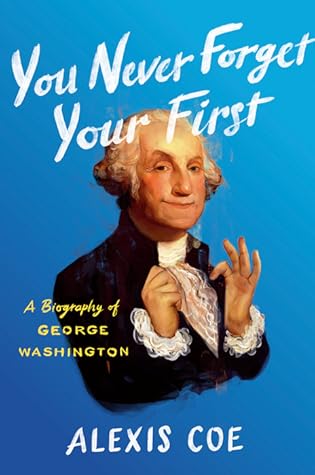More on this book
Community
Kindle Notes & Highlights
by
Alexis Coe
Read between
September 28 - October 7, 2022
Jethro Tull
If the American Revolution had not taken place, Washington would probably be remembered today as the instigator of humanity’s first world war, one that lasted seven years.
“Washington did not really outfight the British,” the British spymaster Major George Beckwith said. “He simply outspied us.”23
by the end of two terms in office, Washington was estranged from three of his four original cabinet members, as well as three out of four future presidents. Half the country considered itself politically opposed to him.
“We are either a United people, or we are not,” Washington had written James Madison in November 1785.13 America had always intended to succeed without a king, a dominant church, or a military leader,
The majority of delegates voted for a single executive, versus three, based on the assumption that Washington was going to be the first president. They figured that he’d define the role through precedents. They could see no other way of establishing the office. If he refused, there was no backup choice.
He was private about his religious views; he often spoke of “Providence,” rarely “God” and “Jesus” or “Christ.” He was most likely a deist, which meant he believed that God was responsible for the creation of the world, but does not intervene in it. Above all, he firmly believed in religious freedom;
True to form, he rarely spoke in Christian terms;
He wanted to represent everyone’s interests (all the land-owning white men, that is) and to govern by consensus (of the same land-owning white men).
Though Washington was sympathetic to the Federalists, he remains the only president who never claimed a political affiliation while in office. At the time, this may have been the pragmatic approach: The Constitution doesn’t mention parties, and until 1804 the runner-up in the presidential election was automatically made vice president. Parties were also at odds with Washington’s goal of unity. Nevertheless, two disparate visions for the country quickly emerged.
My earnest wish, and my fondest hope therefore is, that instead of wounding suspicions, & irritable charges, there may be liberal allowances—mutual forbearances—and temporising yieldings on all sides. Under the exercise of these, matters will go on smoothly, and, if possible, more prosperously. Without them every thing must rub—the Wheels of Government will clog—our enemies will triumph—& by threwing their weight into the disaffected Scale, may accomplish the ruin of the goodly fabric we have been erecting.
Unbridled partisanship was his greatest fear, and his greatest failure was that he became increasingly partisan.
Washington always emphasized that emancipation be gradual; one could argue that this was to acclimate everyone to the notion, but it would, most importantly, lessen the financial blow to slave owners. Still, he did nothing to address the issue while he was in office.
During the Civil War, Confederate and Union soldiers carved their initials into the walls of the vault, a fitting addition to the resting place of the man whose fondest hope was for the nation to be unified. Both sides, the South and the North, the slave-owning and the free, viewed him as their inspiration. And both were right.


